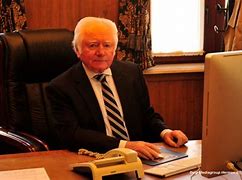The so-called ‘Bingo King’ of Belgium, Willy Michiels, has died at the age of 82 after suffering a stroke on June 5.

The gaming tycoon, who led the Belgian industry for many years and was an important player in setting up Euromat, the European federation of coin machine trade associations, had a long and distinguished career in the business, often chequered to the point where he spent a time in prison.
Michiels made his name in the 1980s, taking the bingo table – a type of gambling machine now almost unique to Belgium – with the appearance of a pinball game from a distance, to dominate the industry. The game, banned in many other countries when it was tried, remained popular and legal in Belgium, where it was – and still is – the only type of gambling machine permitted in bars. He made, sold and operated thousands of the games, under the brand name WiMi.
Michiels’ empire, however, spanned many aspects of the business. He owned cafes, had dozens – if not hundreds – of partnerships with other operators in all forms of the amusement and gaming industry, and was very active in real estate. He had a considerable collection of vintage cars and interests in an equestrian centre.
He was for sometime the mayor of the Belgian town of Haaltert and a member of many local organisatons.
Michiels was the founder of the UBA, the Belge de l’Automatique, the trade association and was the president of Euromat for many years, succeeded eventually by Spain’s Eduardo Antoja. During his time heading the Euromat organisation he often invited delegates to his moated castle in Moorsel that he completely restored into a magnificent home.
It is fondly remembered by Eduardo Antoja, who told InterGame: “Willy owned, apparently, the second-largest private wine collection in Europe. His castle housed three cellars: one for Bordeaux wines, a second one for Burgundies, and a third, smaller one, for wines from other origins, mainly Italy. The only Spanish wine collected was the Vega Sicilia Único, he knew no other.
“The dinner, which only happened in the years in which there were no elections for the presidency of Euromat ‘so as not to influence’, was quite a ritual. A light, standing aperitif with champagne was followed by the first course, goose foie gras with Sauternes, and game meat with red Burgundy. Then, dessert, coffee, and spirits, enlivened by a musical trio for a long half-hour. But he always warned us that whoever drank any high-grade liquor would not accompany him to the wine tasting.
“Because, almost at midnight, he wanted us to follow him to one of the cellars, to taste a Petrus, a Château Lafite Rothschild or any other great - and highly valued - vintage red wine. The tasting was always with brand new glasses that, once used, were broken by throwing them away into a trash bin. ‘You can't taste great wine in a washed glass, there are always residues of detergents or rinse aids,’ Willy used to say.”
Antoja added: “Willy was a great personality, a genius, but also a controversial character right up to the end.”
That controversy was brought to a head in 1999 when he was investigated by the Belgian authorities for corruption. It was alleged he bribed a regulator to include provisions in a revision of the Belgian law that would be favourable to bingo tables. After a lengthy trial and appeal, Michiels spent some time in prison.
Most of his business was eventually sold to the Waterland investment group, where it remains today and his other remaining interests have been handled for some years by his daughter Mieke. Michiels also leaves a wife, Lisette and son Hans-Christian. The funeral was held in Haaltert.

